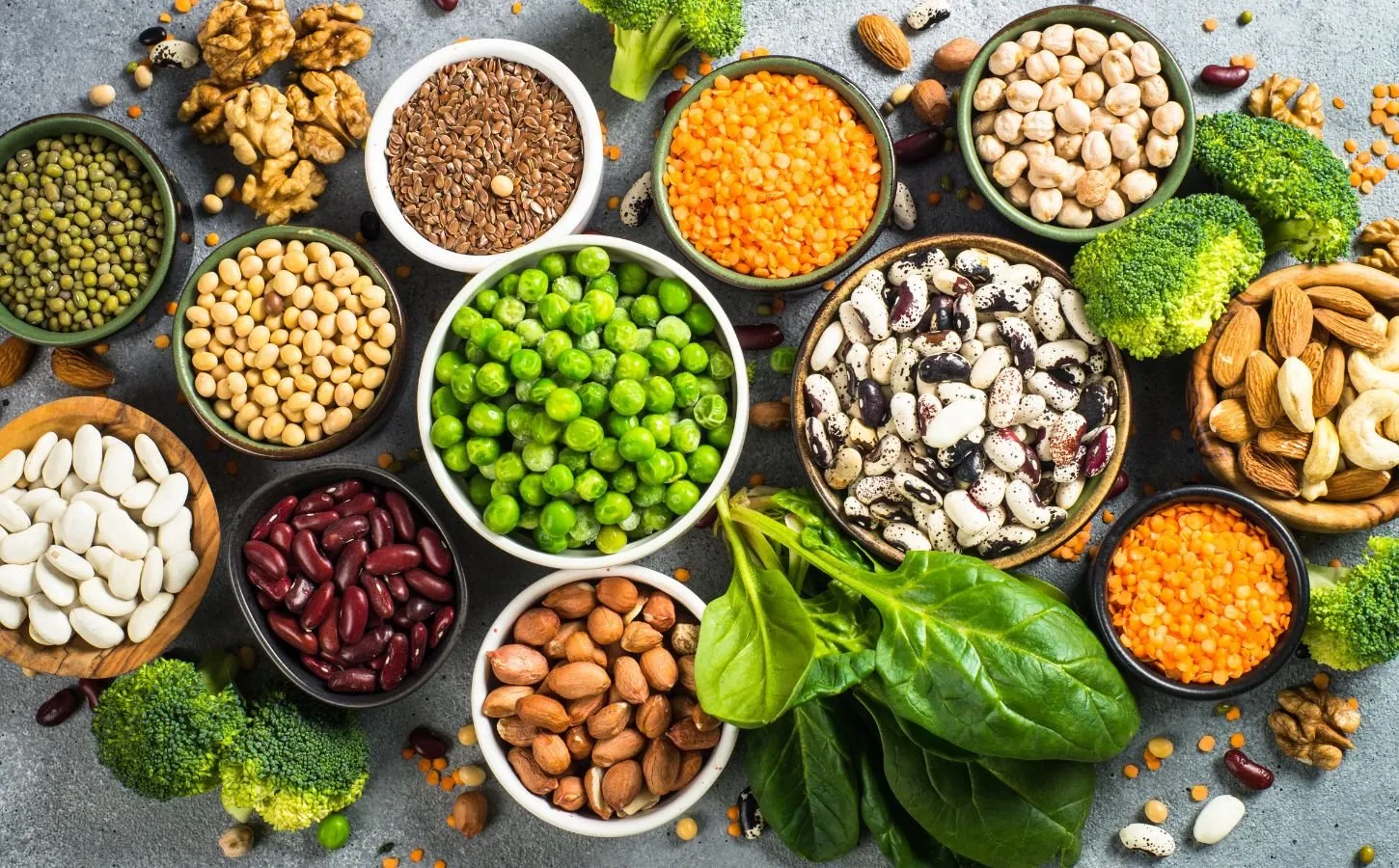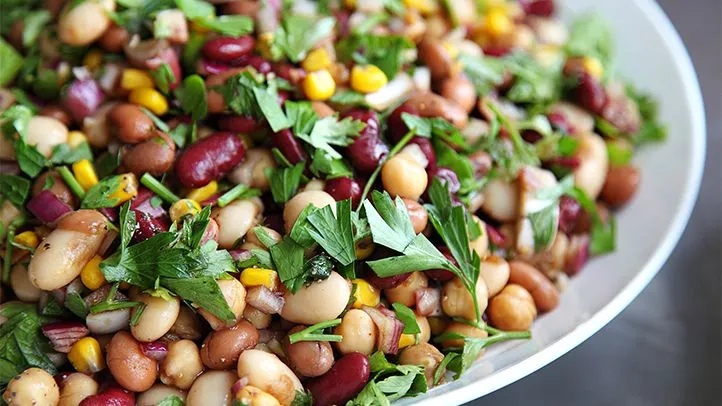Proteins are essential building blocks for the human body, playing a critical role in muscle repair, enzyme production, and immune system support. While animal-based proteins like meat, eggs, and dairy have long been dietary staples, plant-based protein sources are gaining popularity due to their health benefits, sustainability, and appeal to vegetarians and vegans.
Whether you’re looking to adopt a fully plant-based diet or simply incorporate more plant-derived proteins, this guide explores the best options to meet your nutritional needs.
Why Choose Plant-Based Proteins?
Shifting to plant-based proteins offers several benefits:
- Health Benefits: Studies link plant-based diets to reduced risks of heart disease, hypertension, and type 2 diabetes.
- Environmental Impact: Producing plant proteins requires fewer resources and generates less greenhouse gas compared to animal agriculture.
- Dietary Diversity: Exploring plant-based proteins introduces a variety of flavors and textures to your meals.
Top Plant-Based Protein Sources
1. Legumes
Legumes are a powerhouse of plant-based protein, fiber, and essential nutrients.
- Lentils: With about 18 grams of protein per cooked cup, lentils are a versatile and nutritious choice. They are also rich in iron and folate.
- Chickpeas: Whether roasted, blended into hummus, or added to salads, chickpeas provide around 15 grams of protein per cooked cup.
- Black Beans and Kidney Beans: These beans offer approximately 15 grams of protein per cup and are perfect for soups, stews, or burritos.
2. Soy-Based Products
Soy is one of the most protein-rich plant foods, making it a staple for vegetarians and vegans.
- Tofu: Made from soybeans, tofu contains about 10 grams of protein per 100 grams. It absorbs flavors well, making it suitable for a variety of dishes.
- Tempeh: Fermented soybeans pressed into a block, tempeh has 15–20 grams of protein per 100 grams and offers a nutty flavor.
- Edamame: These young soybeans are a great snack, providing 17 grams of protein per cup when cooked.
3. Whole Grains
Grains are not just a source of carbohydrates—they also contain significant amounts of protein.
- Quinoa: Known as a complete protein (containing all nine essential amino acids), quinoa offers 8 grams of protein per cooked cup.
- Farro and Barley: These ancient grains provide around 6 grams of protein per cooked cup and are excellent in soups or salads.
- Oats: With 5 grams of protein per half-cup, oats make a hearty and protein-rich breakfast.
4. Nuts and Seeds
Nuts and seeds are nutrient-dense, offering healthy fats alongside protein.
- Almonds and Peanuts: A handful of almonds (about 23 nuts) has 6 grams of protein, while peanut butter provides 8 grams per 2 tablespoons.
- Chia Seeds: These tiny seeds pack 5 grams of protein per ounce and are rich in omega-3 fatty acids.
- Hemp Seeds: With 10 grams of protein per 3 tablespoons, hemp seeds are an excellent addition to smoothies or salads.
5. Seitan
Often referred to as “wheat meat,” seitan is made from gluten, the protein in wheat.
- Protein Content: Seitan contains a whopping 21 grams of protein per 100 grams, making it one of the highest plant-based protein sources.
- Versatility: Its meat-like texture makes it a favorite in stir-fries, sandwiches, and stews.
Note: Seitan is unsuitable for those with gluten intolerance or celiac disease.
6. Plant-Based Protein Powders
For those who need a protein boost, plant-based protein powders are a convenient option.
- Types: Look for powders made from pea, hemp, brown rice, or a blend of plant proteins.
- Uses: Add them to smoothies, oatmeal, or baked goods for an extra protein punch.
7. Vegetables with Protein
While vegetables are not typically high in protein, some contain a surprising amount.
- Broccoli and Brussels Sprouts: Both provide around 4 grams of protein per cooked cup.
- Spinach and Kale: Leafy greens like spinach and kale contribute 5 grams of protein per cooked cup.
- Sweet Corn: A cup of sweet corn delivers 5 grams of protein, making it a delicious addition to meals.
8. Spirulina and Other Algae
Spirulina, a type of blue-green algae, is an incredibly nutrient-dense food.
- Protein Content: One tablespoon of spirulina provides 4 grams of complete protein.
- Nutritional Benefits: It is also rich in B vitamins, iron, and antioxidants.
Combining Plant Proteins for Complete Amino Acids
While some plant-based proteins are incomplete (lacking certain essential amino acids), combining different sources can provide a complete protein profile.
- Classic Combinations: Pair rice with beans, hummus with whole-grain pita, or lentils with quinoa.
- Variety is Key: Including a diverse range of plant proteins ensures you meet your nutritional needs.
Tips for Incorporating Plant-Based Proteins into Your Diet
- Start Small: If you’re new to plant-based eating, begin by replacing one or two meals a week with plant-based options.
- Experiment with Recipes: Explore dishes like lentil soup, tofu stir-fry, or quinoa salad.
- Snack Smart: Choose protein-rich snacks like roasted chickpeas, nut butter with fruit, or protein bars made from whole foods.
- Batch Cook: Prepare plant-based meals in bulk to save time and ensure you have healthy options on hand.
- Read Labels: If you’re buying packaged plant-based products, check for added sugars, sodium, and preservatives.
Health Benefits of Plant-Based Proteins
1. Improved Heart Health
Replacing animal proteins with plant-based options can lower cholesterol levels and reduce the risk of heart disease.
2. Better Digestion
Many plant-based protein sources, like beans and lentils, are rich in fiber, promoting a healthy gut.
3. Weight Management
Plant proteins are often lower in calories and saturated fats, making them ideal for weight management.
4. Reduced Risk of Chronic Diseases
Studies show that plant-based diets are associated with lower risks of conditions like diabetes, certain cancers, and hypertension.
Addressing Common Concerns
1. Protein Deficiency
A well-planned plant-based diet can meet all protein requirements. Adults generally need about 0.8 grams of protein per kilogram of body weight.
2. Taste and Texture
Experiment with spices, marinades, and cooking techniques to enhance the flavor of plant-based proteins.
3. Nutrient Gaps
Pay attention to nutrients like vitamin B12, iron, and omega-3s, which may require supplementation or fortified foods.
Final Thoughts
Plant-based protein sources offer a sustainable, nutritious, and versatile way to meet your dietary needs. Whether you’re transitioning to a fully plant-based lifestyle or simply looking to diversify your diet, there’s no shortage of delicious and satisfying options.
By incorporating these protein-rich foods into your meals, you’ll not only support your health but also contribute to a more sustainable and compassionate world.
Start small, stay curious, and enjoy the journey toward a healthier, plant-powered lifestyle!




